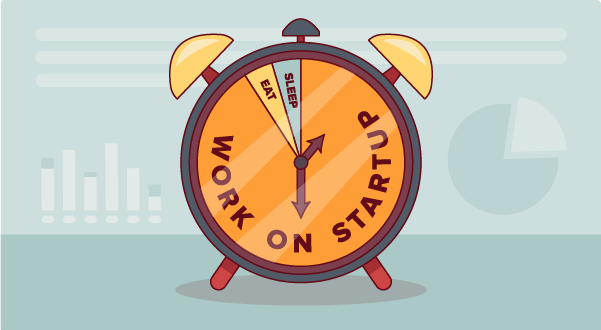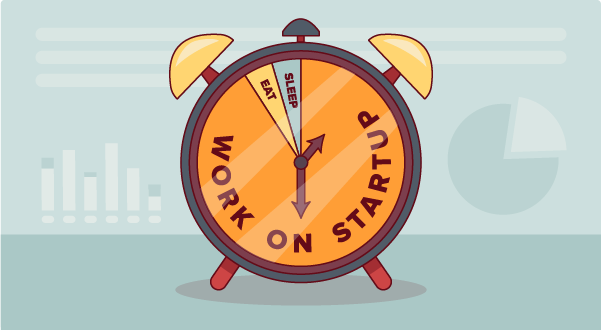Wil Schroter

"Is 60 hours of work per week enough? 80? 100? Do I just work ALL of them?"
In startup culture, we've developed a pretty broken mantra that "more hours equals more growth". We believe we can kill ourselves to success, and if we're being fair, there's a bit of that requirement in building something from nothing, but the real question is — how many hours should we devote to our startup per week?
Before we get into the number of hours we work, let's first focus on the quality of hours we work.
Remember the 40-hour baseline was established at the turn of the 19th century, popularized by the Ford Motor Company in an era where the number of hours that were worked directly drove the growth of the company.
Nowadays, the correlations are rarely there. Most of our productivity comes from the quality of our work, not the number of hours.
So how do I know how many quality hours I have?
Track it.
Start recording all of your time spent throughout the day in 30-minute increments for a couple of weeks. At the end of those 2 weeks, start to look at where you were most productive and where you found yourself "dozing off" by comparison.
You'll find that there are likely sweet spots within the day where your output and focus is at peak — those are your quality hours. Your workday should be focused on harvesting the most quality hours, not just more hours.
Can I do a Tim Ferris "4-Hour Work Week" then?
Probably not, and that's fine.
The point of focusing our hours isn't to "shorten our work week" (although that would be nice) it's to separate this notion of "lots of hours" with "lots of output.”
If we focus solely on the concentration of peak output, we can then get a sense for how many "core productive hours" we have, which forms the real baseline for the number of hours we have to work.
What about my "non-peak" hours?
Well, those are super important too, because not everything is going to be a "peak hour" task.
All of the emails, slack messages, customer calls and non "peak performance" tasks need to be dropped in there. Those may in fact require another 10 hours per day to complete, so yeah, you're back to a 70-hour week.
The difference is that you're working 70 hours because that's exactly how long it takes to do everything, not because you're just "available for 70 hours."
OK, so how many hours should I work?
The least amount possible to cover peak work, and again the least amount possible to cover "non-peak" work.
Start by cutting yourself off at 40 hours and see how much production you can cram into that schedule. Look at every additional hour over that limit as a "problem of efficiency" not a badge of honor for commitment.
The hours you save at work will directly help you recharge at home, which, incidentally will help you get more work done.
In Case You Missed It
How much should I be working? (podcast). Wil and Ryan take a deep dive into the benefits of thinking quality and not quantity when it comes to your weekly punch card.
Optimizing for productivity. Working through peak productivity is easy. It’s the valleys that we’re concerned about. They key is to plan for and optimize the valleys so we can recharge effectively.
Neil Patel on breaking down barriers to productivity. Marketing guru Neil Patel discusses how he manages to stay productive at work while juggling an ever-increasing list of side projects — and what drives him to keep going when the tank is running on E.
Find this article helpful?
This is just a small sample! Register to unlock our in-depth courses, hundreds of video courses, and a library of playbooks and articles to grow your startup fast. Let us Let us show you!
Submission confirms agreement to our Terms of Service and Privacy Policy.
Already a member? Login
No comments yet.
Start a Membership to join the discussion.
Already a member? Login

